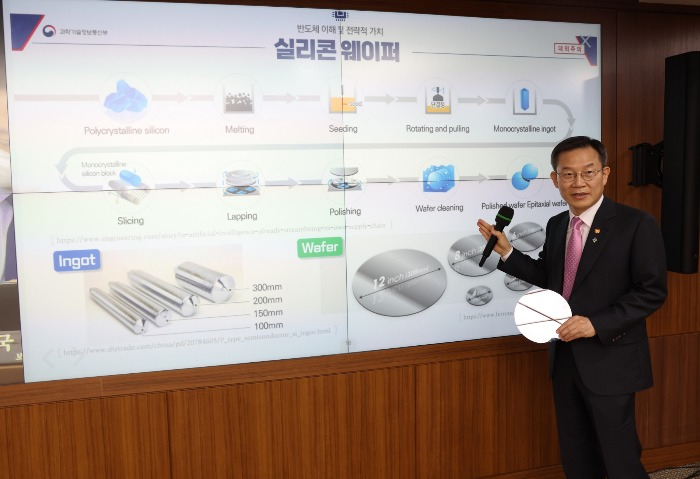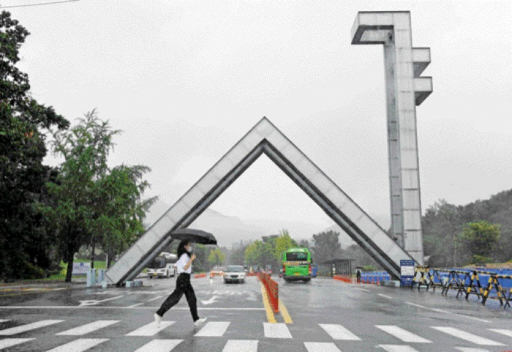Plagiarism scandal hits top S.Korean university over AI-themed papers
Two papers from Seoul National University's AI lab are at the center of the allegations, science minister's son is implicated
By Jul 01, 2022 (Gmt+09:00)
LG Chem to sell water filter business to Glenwood PE for $692 million


Kyobo Life poised to buy Japan’s SBI Group-owned savings bank


KT&G eyes overseas M&A after rejecting activist fund's offer


StockX in merger talks with Naver’s online reseller Kream


Mirae Asset to be named Korea Post’s core real estate fund operator



South Korea's most prestigious university is embroiled in a plagiarism scandal after two papers it published on artificial intelligence are believed to have copied some sentences from prior studies without attribution.
The junior Lee, whose full name has not been released, was the lead author of the paper, entitled “Energy-efficient knowledge distillation for spiking neural networks,” published in June 2021.
He is a doctoral student under Yoon Sungroh, an SNU professor in the department of electrical and computer engineering & artificial intelligence. Professor Yoon participated in the research as a corresponding author.
In detail, the paper appeared to copy and paste a 26-word sentence from SenseTime's 2019 publication, “Knowledge distillation via route constrained optimization."
Except for changing the verb “is” to “has been,” the SNU’s paper used the same sentence without attribution, a study by The Korea Economic Daily shows.
That sentence was about making reference to the preceding study released by Cornell University in 2006. The junior Lee’s paper copied the SenseTime’s summary and descriptions of the 2006 research.
In the same paragraph from the SenseTime’s publication, Lee and his co-authors allegedly copied an 18-word sentence to make a similar, 12-word sentence after deleting some words.
SECOND PRIOR STUDY
Secondly, the junior Lee’s paper allegedly extracted two sentences from a study by China’s Jiansu University, “Knowledge distillation: A survey,” published in the International Journal of Computer Vision in March 2021.
The SNU’s paper is believed to piece together two sentences from Jiansu University’s paper. It changed only prepositions and articles from the corresponding sentences, in addition to replacing the word “targets” with “labels” in the Chinese university's paper.
The plagiarism allegations violated the Code of Research Ethics and were unveiled last week on the SNU’s online community.
In response, Science Minister Lee told local media reporters that the allegations involving his son needed to be clarified through an investigation and he will wait and see until the SNU releases the results of its internal investigation.
As a renowned semiconductor expert, the senior Lee is a former SNU electrical engineering professor. He also received master’s and doctorate from the university.

ANOTHER PAPER
Professor Yoon’s AI lab is also involved in a plagiarism scandal for another paper, in which two of the three co-authors for the above-mentioned SNU paper are implicated.
The second AI-themed paper, entitled “E2V-SDE: From asynchronous events to fast and continuous video reconstruction via neural stochastic differential equations,” drew attention from AI experts and was presented at a recent international conference.
But two days after its publication, a Youtuber disclosed the similarity of some sentences in the latest study to those from over 10 prior research papers, including a 2018 study by the University of Toronto.
On Monday, SNU launched a committee to investigate the plagiarism allegations of the two studies and those involved in the papers, including Professor Yoon and his doctoral students.
Yoon was not immediately reached for comment.
Write to Ye-Rin Choi at rambutan@hankyung.com
Yeonhee Kim edited this article.
-
 MetaverseMeta, Seoul National University jointly set up XR research center
MetaverseMeta, Seoul National University jointly set up XR research centerJun 30, 2022 (Gmt+09:00)
1 Min read -
 ElectronicsLG Elec looks to pluck AI talent from Amazon, Microsoft
ElectronicsLG Elec looks to pluck AI talent from Amazon, MicrosoftJun 17, 2022 (Gmt+09:00)
2 Min read -
 Artificial intelligenceKAIST develops brain-like, large-scale memory system
Artificial intelligenceKAIST develops brain-like, large-scale memory systemJun 08, 2022 (Gmt+09:00)
2 Min read


